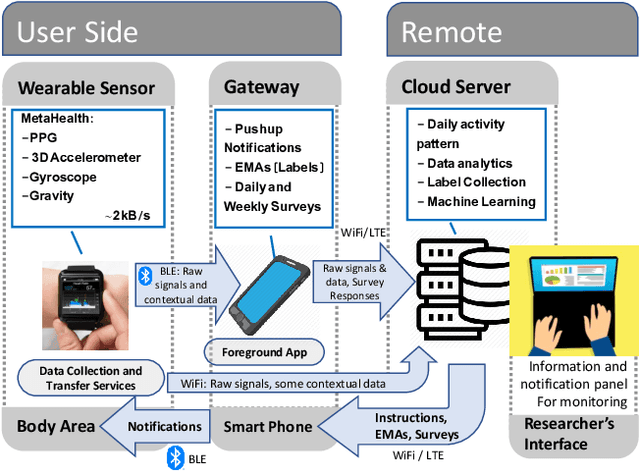Data Collection and Labeling of Real-Time IoT-Enabled Bio-Signals in Everyday Settings for Mental Health Improvement
Paper and Code
Aug 02, 2021



Real-time physiological data collection and analysis play a central role in modern well-being applications. Personalized classifiers and detectors have been shown to outperform general classifiers in many contexts. However, building effective personalized classifiers in everyday settings - as opposed to controlled settings - necessitates the online collection of a labeled dataset by interacting with the user. This need leads to several challenges, ranging from building an effective system for the collection of the signals and labels, to developing strategies to interact with the user and building a dataset that represents the many user contexts that occur in daily life. Based on a stress detection use case, this paper (1) builds a system for the real-time collection and analysis of photoplethysmogram, acceleration, gyroscope, and gravity data from a wearable sensor, as well as self-reported stress labels based on Ecological Momentary Assessment (EMA), and (2) collects and analyzes a dataset to extract statistics of users' response to queries and the quality of the collected signals as a function of the context, here defined as the user's activity and the time of the day.
 Add to Chrome
Add to Chrome Add to Firefox
Add to Firefox Add to Edge
Add to Edge